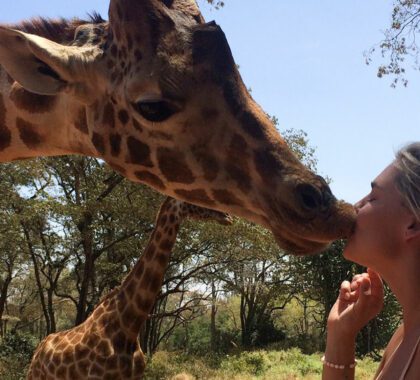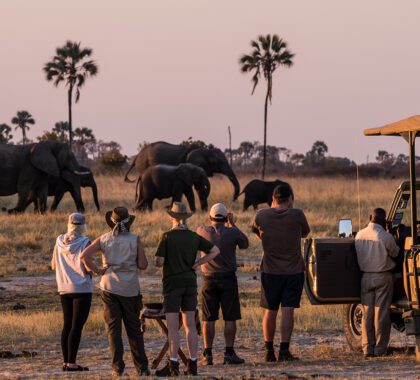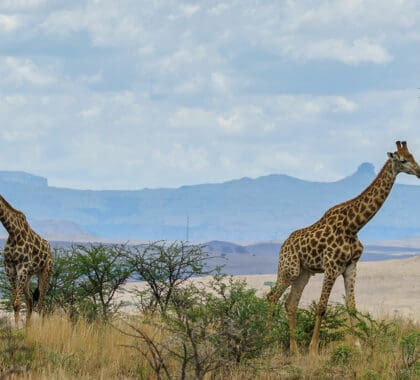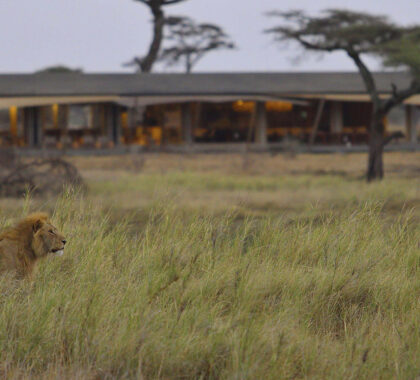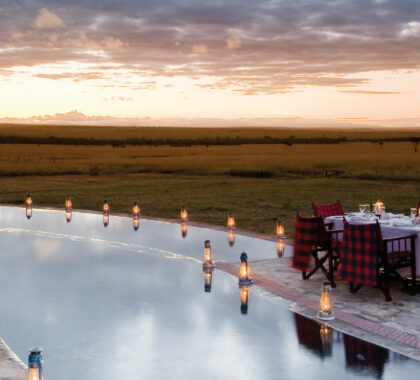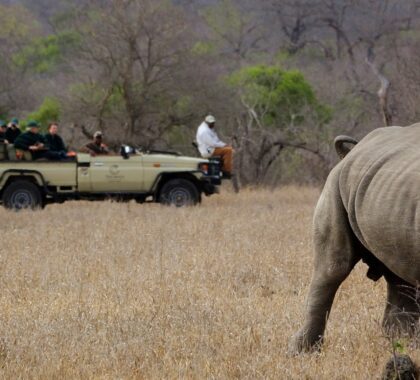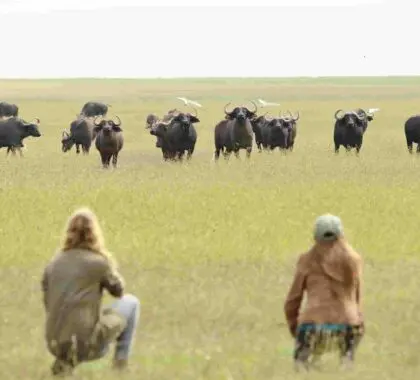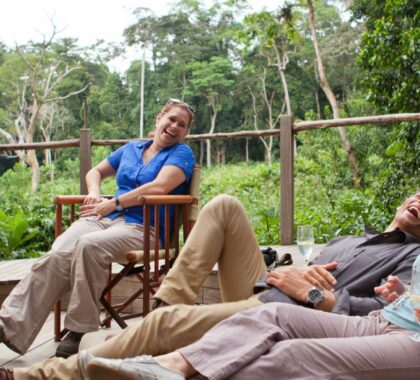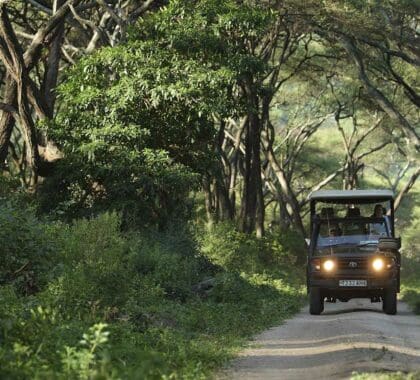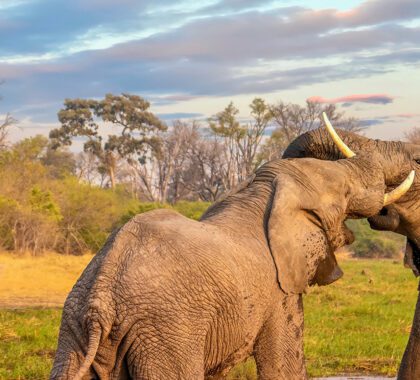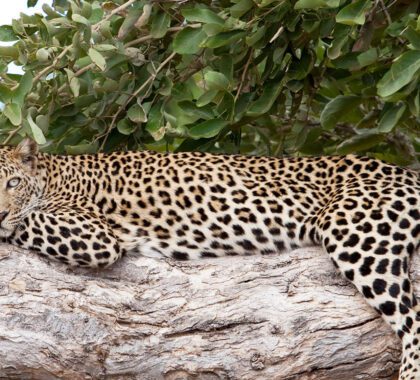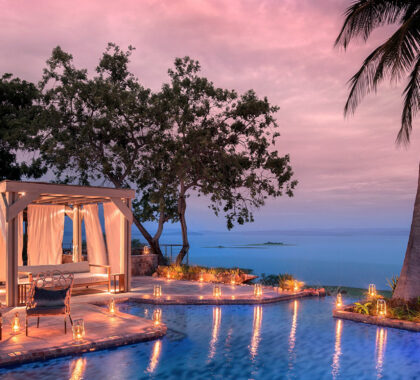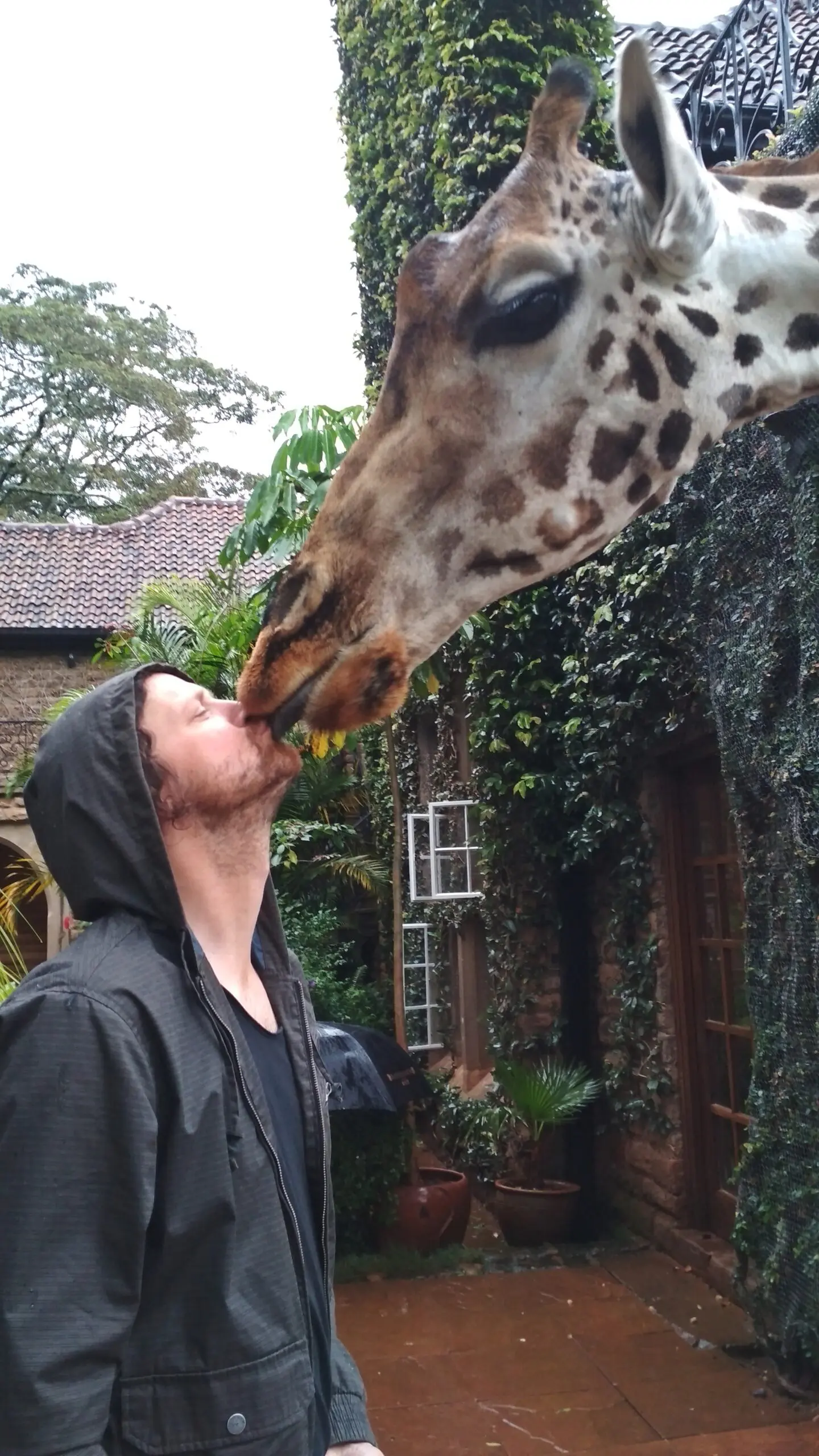Estimated reading time: 10 minutes
Is it safe to travel to Africa? Africa remains a safe holiday destination, particularly for safari. Since our establishment in 1998, we’ve successfully tailor-made safari vacations for thousands of travellers from across the world. Safari is not only one of the best ways you can travel because of the direct impact your trip has on protecting wildlife, conserving habitats, employing people in rural communities, and educating children across Africa, but it has also been one of the safest. Safari is one of the safest ways to travel anywhere in the world.
Why is Safari a Safe Way to Travel?
1. No Crowds
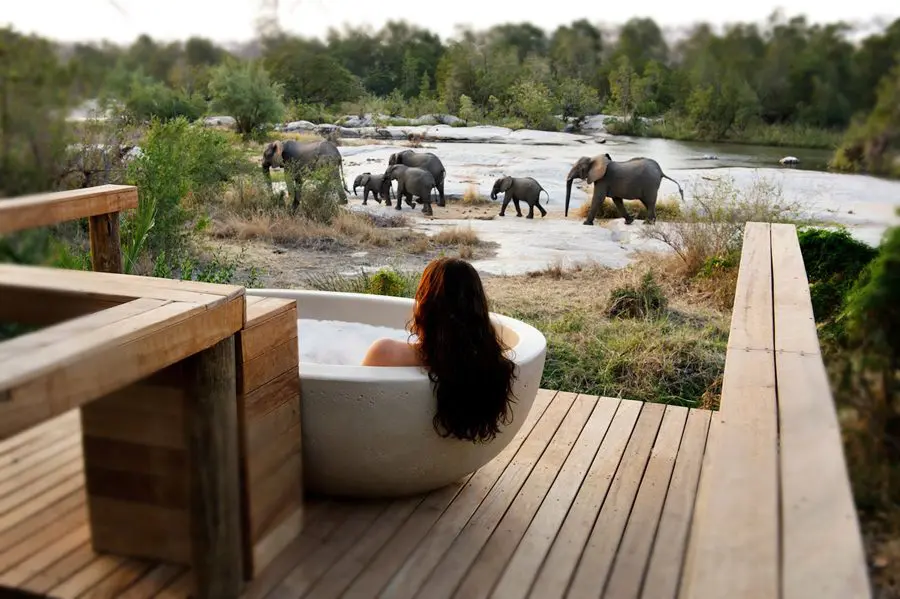
Unlike train travel, a resort or cruise vacation, you will not come into close contact with large numbers of travellers. Whether you are sitting down for a delicious dinner, enjoying a thrilling game drive or even transferring between camps, social distancing is inherent in the African bush.
Safari camps and lodges are designed to be small and intimate – the number of rooms or tents can range anywhere between six and 12 – so you feel fully immersed in the wild. Some camps also offer private dining experiences in romantic locations under the stars – a firm favourite for honeymooners. You’ll notice the high staff-to-guest ratio at safari lodges and camps which not only means great service, but cleanliness as well. Your room or tent and all the common areas are immaculately cleaned each day.
The number of guests in a game drive vehicle is also limited to a handful, as are the number of passengers in road transfer vehicles and air transfers between destinations. Safari vehicles are usually open-sided 4X4s, generally seating 6 guests on three rows of tiered bench seats to travel safely and give everyone a great view on game drives. Many safari camps even offer private vehicles for small groups or families travelling together. The light aircrafts used for air transfers are state-of-the-art and expertly adapted to the African safari environment, without compromising on safety and comfort. These aircrafts generally have capacity for only 6 to 12 passengers, but private charter flights are also available.
2. Wide Open Spaces
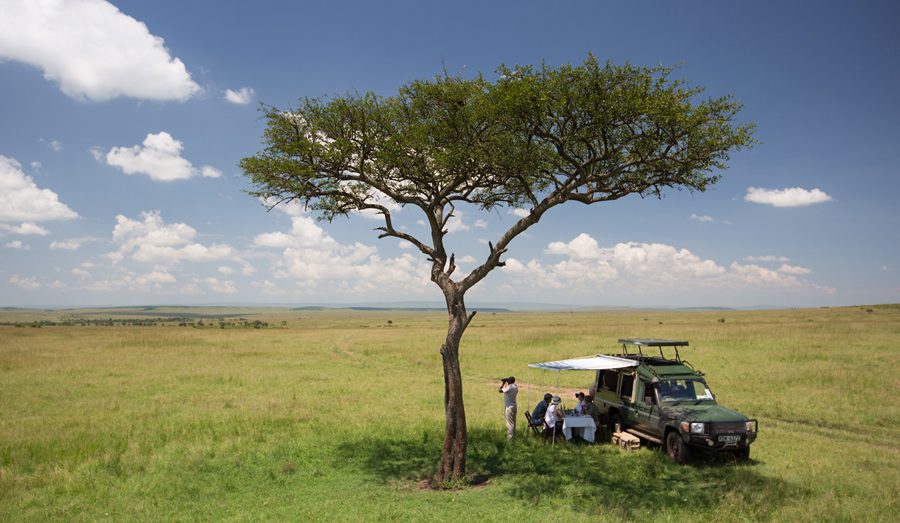
Fresh air, fresh air, and more fresh air. Not only does safari travel keep you away from crowded places, but it also provides you with the healthiest natural air to breathe far from commercial industries and pollution. There’s nothing quite like being in the African wilderness, breathing in the clean air of these protected wildernesses, and feeling one with Mother Nature.
An average day on safari will see you spending around four to six hours on game drives in the great outdoors. Generally, you’ll go out early in the morning and then again in the late afternoon – and if you stay in a private reserve, you’ll even be able to go on night game drives to discover Africa’s fascinating nocturnal creatures. Private reserves and selected parks also offer guided nature walks, which is another fantastic way to explore the great outdoors and experience Africa with all your senses.
Some camps offer picnic-style breakfasts or lunches during game drives, which takes al fresco dining to a whole new level. Back at camp, you can enjoy an afternoon siesta in the comfort and privacy of your tented suite, while at night you’ll sit in awe under a never-ending blanket of stars as a cosy campfire roars like a distant freight train.
3. Every Detail is Taken Care Of
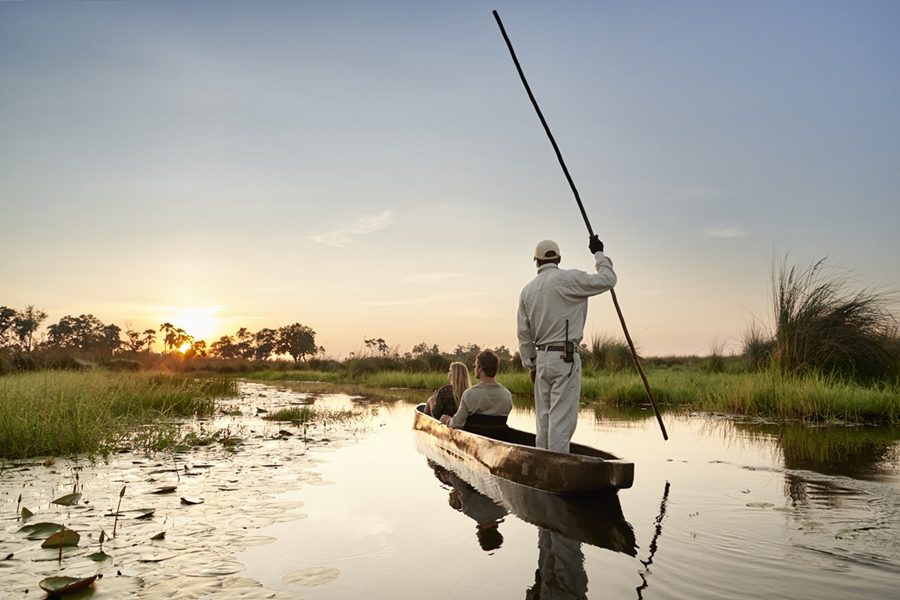
Is it safe to travel to Africa? Well, Africa is a BIG place and putting together a safari that runs like clockwork can be a complicated process. It requires threading many logistical needles – which makes it vital to work with a travel agency that’s based in Africa. When both your satisfaction and your budget are at risk in a destination with foreign cultures, unusual logistics and a diverse offering of accommodation, you want an expert on your side to ensure safe travel in Africa. Someone who’s totally plugged in and understands the important cultural ins and outs of the continent.
For twenty-five years, we’ve lived our ethos of ‘we know because we go’. All of our African Safari Experts (that’s what we call our travel agents) are permanently based in Africa, are well-travelled on the continent, and have extensive first-hand experience with the destinations they recommend. Being based in Africa means we continuously have members of the team discovering and inspecting new lodges, camps, experiences and activities to ensure that every itinerary is tried and tested.
Go2Africa is a full-service partner for your safari vacation. Our African Safari Experts match your preferences, travel wishes and budget to carefully selected accommodations and activities. We take care of every little detail, so you don’t have to. Every flight, every activity, every accommodation, and every chaperone or guide who meets you at each transfer point… from A to Z.
When it comes to going on vacation in a destination like Africa, having an agent’s trusted network of suppliers and 24/7 backup offers absolute peace of mind – which is a big part of relaxing on holiday. Even if nothing goes wrong and all the logistics run as smoothly as silk, you’d want to know that you have professional support 24/7 on the ground – not at a call centre in another time zone.
Africa Travel Tips: How to Do it Safely
Many travel companies stay away from addressing the issues around safety directly. We believe that the more informed our travellers are, the safer, better prepared and happier their vacation will be, so we’ve rounded up our top travel tips on safe travel in Africa.
For starters, it makes sense to adopt the same safety precautions that you have at home – the precautions you take whether visiting Venice or Vladivostok:
- Avoid ostentatious displays of wealth and keep use of your digital gadgets to a minimum in crowded public places.
- Stay out of the busy downtown areas in cities and the industrial or business areas after dark.
- When in doubt, ask your concierge or guide and listen to their advice.
- Always make copies of your travel documents and store these separately.
- Keep money in a belt that deters pickpockets and turn down offers of friendly assistance when it comes to exchanging money.
When travelling to Africa – as with any exotic destination – there are a handful of less obvious considerations: you may be going on safari, which means the possibility of malaria and the presence of large, dangerous creatures such as lions. And there are specific cultural considerations and logistics to consider too.
1. Personal Security
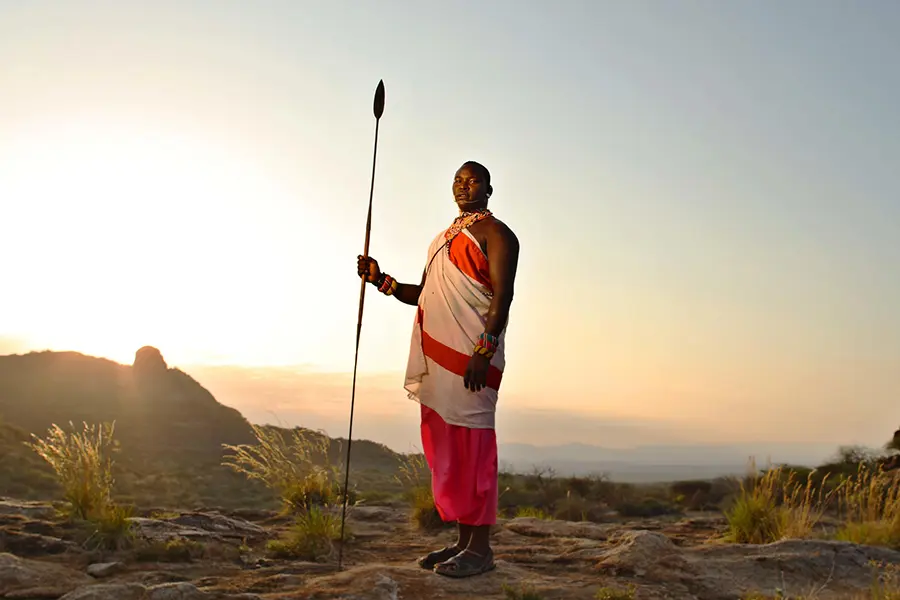

Internet research. Traveller forums like TripAdvisor, the US and UK government advisories and popular Africa travel blogs (like this one!) make it quick and easy to find out what’s happening where.
Contextualise the headlines. High crime rates can taint an entire country, but iconic destinations like Cape Town and the Masai Mara are among the safest places to visit in countries like South Africa and Kenya. Take a stroll along Cape Town’s Atlantic promenade one summer’s evening and you’ll see what we mean.
Be sensible. Don’t take photographs at border crossings or of government buildings and adopt a positive attitude when dealing with uniformed authorities. Take advantage of on-the-ground information – your hotel concierge and guide are there to help.
Be respectful. Treat places with religious or cultural sensitivities, such as Zanzibar or the Maasai homelands, with the same respect you expect of tourists in your own neighbourhood. Avoid taking intrusive photographs of people and dress appropriately in religious settings. Appropriate dress for men and women in these religious regions is clothing that covers the knees, elbows and collarbones. For women with long hair, it’s often considered appropriate to tie your hair back or simply tuck it into a hat.
2. Your Health
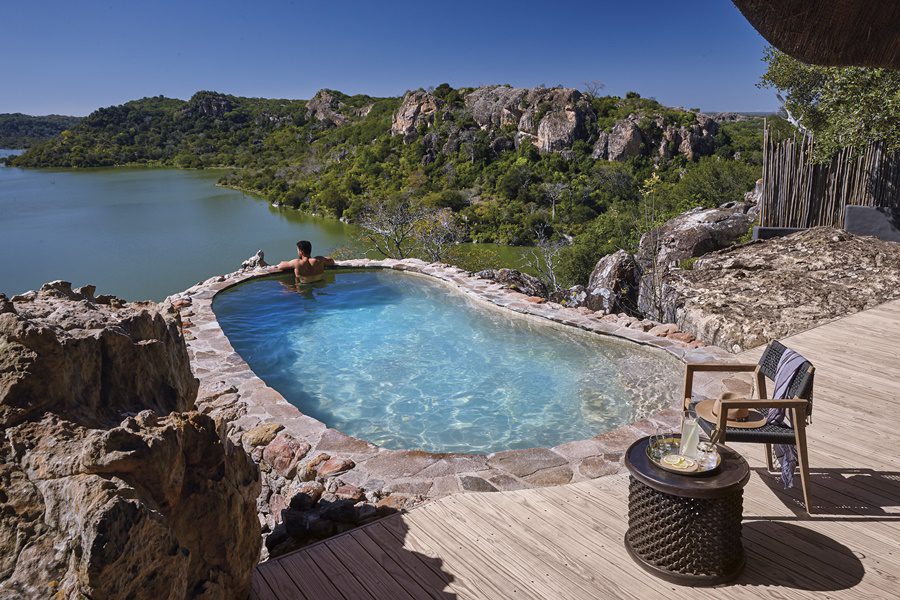

Ask a healthcare professional for advice on country-specific inoculations and vaccines. For travel to East Africa, you may be required to provide proof of your yellow fever inoculation. Vaccinations, or boosters of your childhood vaccines, are highly recommended, especially for typhoid, tetanus, meningitis, hepatitis A and B, and rabies. Don’t leave these to the last minute as some vaccines can make you feel unwell for a day or two and some destinations require the vaccination several weeks before travel.
Take anti-malarial precautions. The best defence against malaria is to avoid being bitten by mosquitoes. In the evenings, cover your legs, arms and feet and apply insect repellent liberally. Speak to your healthcare professional about the malarial prophylactics available to you – this is a strong medication with many contra-indications and can be unsettling. Be aware of common side effects and remember that you may need to take the prophylactics before and after your safari. If you want to take the risk out of the equation, there are several malaria-free destinations in Southern Africa and the Indian Ocean islands.
Drink bottled water – it’s cheap and readily available. Safari lodges and camps serve complimentary bottled water on game drives and in your room. Many properties will give you a complimentary bottle that you can fill up with filtered water whenever you need it. Tap water is fine in South Africa and in many lodges where the wilderness setting means the pure spring water runs through the taps. However, many illnesses are waterborne making it inadvisable in urban areas outside South Africa to drink tap water, take ice cubes in your drinks, or eat raw fruit and vegetables that may have been washed in tap water.
Bring a hat and sunblock. No matter your destination or the time of year, from summer in the Namib desert to the Serengeti in winter, you need sunblock and a hat. The African sun is not gentle on any skin type.
Avoid dehydration. This is one of the most common causes of upset on vacation. Overheating, overexertion, and not drinking enough fluids can all cause dehydration. According to the Mayo Clinic, early symptoms include headaches, fatigue, nausea, constipation, being very thirsty, having noticeably dry skin and feeling lightheaded or dizzy. It’s not enough just to drink lots of water, you also need to replace the electrolytes you lose in sweat (much like athletes do). Speak to your healthcare professional about electrolyte replacements that you can add to bottled water if you suspect you are dehydrating and make sure you add these to your safari first aid kit.
Don’t forget your personal first aid kit. Always bring enough of any prescription medication you take regularly – never assume that you can obtain the same medication in Africa. It’s a good idea to carry a small first aid kit when you travel – chat to your travel clinic or healthcare professional and pack regular non-prescription medication that you use at home for minor medical needs.
Inform your agent and guide. Always alert your agent of any chronic illness or allergies so that both your lodge and guide are informed of any special needs you may have. If you feel unwell while you travel, always alert your guide, hotel concierge or lodge host. These individuals are best placed to get you to professional medical care, or simply to adjust your itinerary about how much time you spend exposed to the elements or how much distance there is between bathrooms.
3. Getting Around Safely
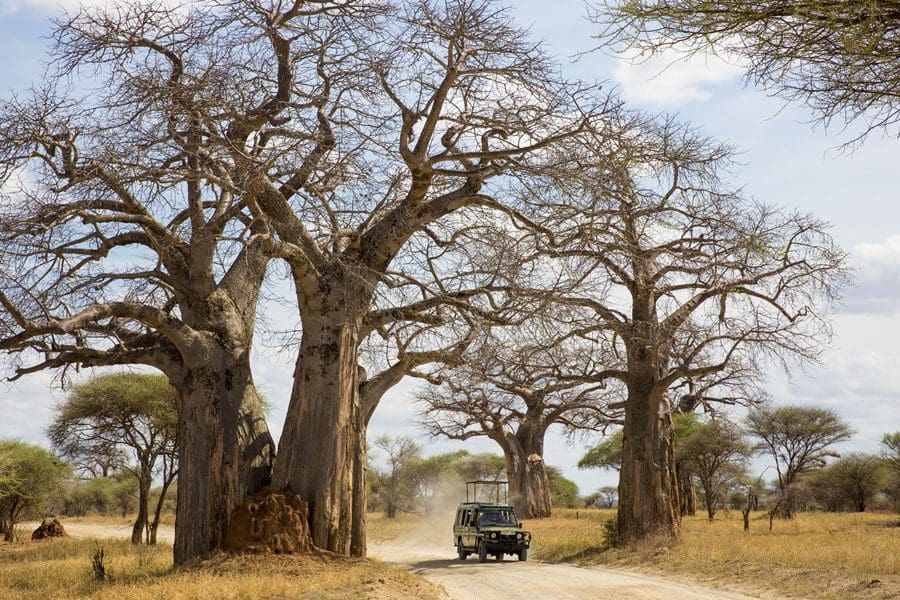

Familiarise yourself with how you’ll get from A to B – this information is readily available in your detailed travel doc provided by our Africa Safari Experts. Visitors to Kenya usually land at Nairobi’s Jomo Kenyatta International Airport but transfer to Wilson Airport, which is about an hour and a half drive away (depending on traffic), to catch a charter flight into the country’s legendary safari areas. Knowing these details will make you feel more at ease.
Pre-arrange airport transfers. Airports and other travel hubs are points where a traveller’s ignorance makes them most vulnerable to being taken advantage of – rather begin your holiday being greeted with your name on a clipboard and a smile of welcome rather than a clamouring scrum of taxi drivers. Our African Safari Experts pre-arrange all your logistics ahead of time.
Stick to South Africa and Namibia for self-drive holidays. Both are ideal destinations in terms of roads, signage, accommodation and attractions. The rest of Africa isn’t suited to self-drive touring – you need exceptional 4X4 driving skills, a sensibility for wandering livestock and a very thorough knowledge of where you are heading, as signage and maps can be outdated or simply incorrect. If you prefer travelling by road, a private guide is an excellent option for safe road travelling in Africa.
4. Safety on Safari
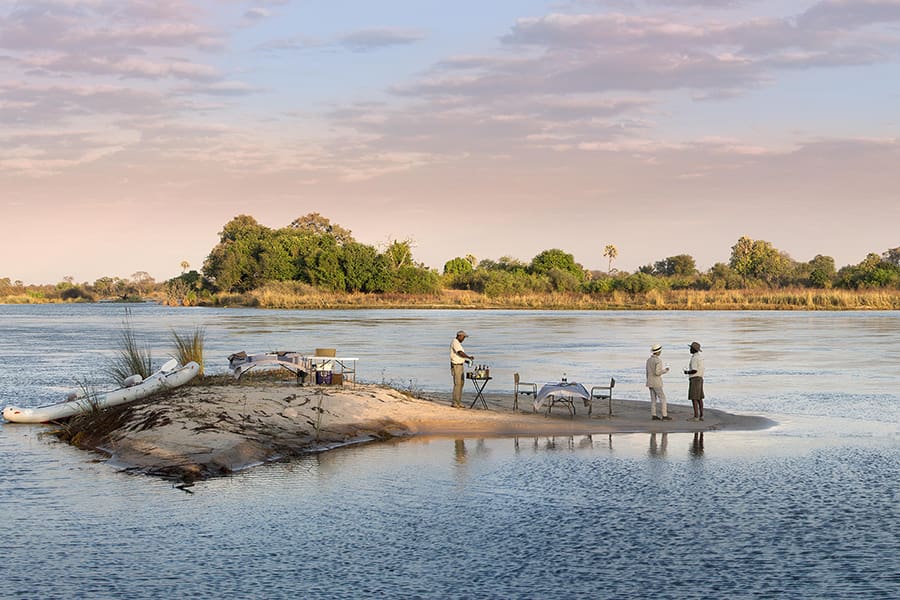

Take careful note of your safety briefing on arrival. Many safari lodges are unfenced and wildlife will wander onto the property. Although these lodges are constantly patrolled and perfectly safe, always remember that the creatures you may encounter are entirely wild and will react defensively if you appear to be a threat, or aggressively if you act like an easy meal. Never approach a wild animal or attempt to touch one.
Be malaria savvy. Use your room’s mosquito nets and ceiling fans and apply insect repellent to exposed skin in the early mornings and late afternoons (before your game drives) and again in the evenings before dinner.
Always listen to your guide. He/she knows how to keep you safe in Africa but can only do that if you listen to instructions. The great beauty of an African safari is experiencing the wilderness as naturally as possible. Be mindful and realistic about encountering potentially dangerous animals, bugs and exposure to the elements.
Ready to Start Planning Your Trip of a Lifetime?
Travelling in Africa safely relies on making the same good choices you would apply to any other destination. Inform yourself well before you arrive by consulting health care professionals and by working with a great travel partner – a professional safari travel company should tailor your itinerary using current knowledge and local on-the-ground expertise.
Combine good old-fashioned common sense with destination-specific advice and you have all you need to travel safely in Africa. Chat with one of our African Safari Experts to help tailor-make a trip that’s right for you:

